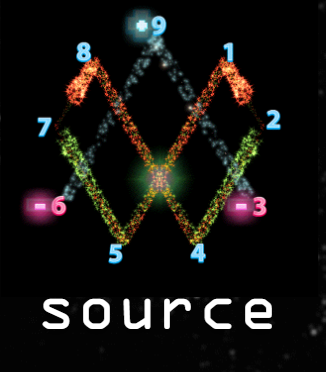Bitcoin was created by Satoshi Nakamoto without any ICO or fund raiser. The only coin that was ever pre-minted was the one used by Satoshi himself to prove concept. Satoshi contributed selflessly for the benefit of humanity without monetizing his intellectual property for personal wealth.

All the 21,000 Bitcoins that will be ever mined will be mined through contributors to the blockchain, the miners, not by contributors of fiat money or other cryptocurrencies.
Satoshi's contribution to humanity was free of greed and aimed to free humanity from the financial system ruled by few elite with self serving interests. His purpose was hinted by references to a headline within Bitcoins initial transaction, the "Genesis Block", which reads "The Times 03/Jan/2009 Chancellor on brink of second bailout for banks" and took place just after the Great Recession of 2008.
Unfortunately, it seems that Satoshi's vision was once again monetized by pioneers becoming instantly rich by selling millions of dollars in pre-minted initial coin offerings, some of which have no restrictions on use of funds, which will likely result in the in defrauded investors and scammers in prison in the near future.
The value of distributed consensus, aka "blockchain", will, however, live beyond the wild west days of ICO's into a future of demonetized decentralization driven by selfless contribution, eventually demonetizing the blockchain and liberating cryptocurrency investors from virtual "printing presses".
EOS the Demonetization of Etherium?

EOS, for example, aims to demonetize the cost of hosting smart contracts on the blockchain in disruption of Etherium's fee-based approach. In a similar fashion, Steemit demonetizes hosting of content on the blockchain and decentralizes social media. EOS and Steemit are both created by the same technical lead, @dantheman, who often reminds us of his aim for "Free market solutions to life, liberty and poverty. "
EOS might have demonetized the use of blockchain, but it still raises investment from fiat-funded Etherium, breaking records with $185 million dollars raised in five days after its initial coin offering, continuing today to have a 400 million dollar market cap prior to launch, claiming on its website :
"The EOS Token distribution takes place over 341 days which is expected to provide ample time for the community to familiarize themselves with the project, as well as participate in the distribution."
EOS demonetized the usage of the blockchain, but it's still very well funded by investors, unlike Satoshi's Bitcoin. Slowly, the crypto space is attracting the attention of those very same bankers Satoshi tried to free humanity from, including none other than former Morgan Stanley CEO John Mack.
Contribution-Mined-Only Blockchain the Demonetization of EOS?
As the virtual coin printing presses crank out coins for initial offerings, fully decentralized platforms with no pre-mined coins are taking shape behind the shadows, waiting to demonetize ICO's.
One such fully demonetized and decentralized coin, following Satoshi's vision, is Source, where coins can only be mined through contribution, and not through an initial coin offering.

The about page on Source.org states:
Source is a peer-to-peer contribution-driven consensus chain aiming to free humanity of greed, through the elimination of centralized power, dishonesty and manipulation from economy and politics.
The whitepaper, written by a "Satamoto Nakoshi", appears to be a work in process and states:
"A decentralized, purely peer-to-peer, distributed consensus chain, supported by token-rewarded contributions and directed by anonymously verified unique-identity peer voters, would allow for economic and political interactions from one party to another, to a group, and to the whole; possible without the need of centralized institutions as liaison, which leave societies vulnerable to centralization of power, dishonesty and manipulation, resulting from greed. No tokens/coins are pre-created or pre-issued, rather, are created and issued to contributing peers, according to contributed value."
Can distributed consensus really free humanity of greed?
Me personally, I would say "one day, yes".